Oxycodone 10mg hcl is used to break through pain from average to extreme pain. Oxycodone pills are both the brand name and generic name of the drug. Oxy IR 5 mg or Oxycodone 10mg white is a lower dose of Oxycodone and is prescribed for the starting pain of the patient. It may increase in dose for extreme pain such as cancer pain, after-surgery pain, or pain from serious injury.
A person who has issues with their health and mental condition should not take 10 milligram Oxycodone. It is important to remember the patient should inform the doctor about asthma, allergies to medication, stomach cramps, etc. Before taking Oxycodone hcl 10mg tablet the patient also tells the doctor about his addiction to medication, food habits, level of pain, etc. According to the doctor’s permission, the doses may increase to 60 mg, or 80 mg not more than this dose for the unbearable pain.
Some Brand Names Of Oxycodone:
- Oxynorm
- OxyIR
- Oxycontin
- Dazidox
- Percolone
- Roxicodone: rapid-release formula
- Targinact: combination with naloxone
- Percocet that combination with acetaminophen
There are also many street names for the substance, such as Oxycotton, Perc, Oxy, Roxis, Oxycet, Killers, Berries, and Hillbilly Heroin.
Oxycodone is an opioid painkiller that comes in a pill form with different strengths. Along with 10 mg oxy of Oxycodone other doses are available such as 5 mg, 15 mg, 20 mg, 30 mg, 40 mg, 60 mg, and 80 mg. According to the patient’s level of pain, gender, and age, the doctor will guide you the right way.
Oxycodone Doses:
Oxycodone is available both in capsule, tablet, and oral solution form.
Following strengths Of Oxycodone:
- The strength of Oxycodone capsule (5 mg), and in tablets (5 mg, Oxycodone 10 mg immediate rel tabs, 15 mg, 20 mg, 30 mg)
- In the extended-release tablet (Oxy 10 extended release, Oxycodone er 15, 20 mg, 30 mg, 40 mg, 60 mg, 80 mg),
- In the extended-release capsule (9 mg, 13.5 mg, 18 mg, 27 mg, 36 mg),
- Oral solution (Oxycodone 5 ml, 100 mg/5 mL).
Doses For Adults:
- The usual starting dose of Oxycodone immediate-release capsules and tablets for adults is Oxycodone 5mg ir to 10 mg Oxycodone pills every 4-6 hours.
- A dose of Oxycodone 10 mg immediate release to Oxycodone 30 mg IR for adults every 4-6 hours may be prescribed who have taken opioid medications before. They are tolerant of their effects.
- However, the extended-release dosage forms of Oxycodone are taken every 12 hours.
- The liquid containing Oxycodone 5 mg dosage in 5ml or 10mg of Oxycodone in 1ml of liquid. Usually, the adults are taken 4 to 6 times a day in oral solutions. The patient will usually take the strength that contains 5mg in 5ml. Always check the right strength when you have taken Oxycodone liquid.
Generally, the doctors prescribe the smallest dose of Oxycodone for the shortest possible time to relieve pain.
Misuse Of Oxycodone 10 mg Tab:
Oxycodone tablets come in the schedule II drugs. It is a boxed warning by the FDA (Food and Drug Administration) of misuse and addiction. Hence, the patients need to understand that misuse happens when a person takes a medicine differently as prescribed to them. Whereas, addiction to the medication happens when a person takes a medication in more than the prescribed dosage.
Various incidents happen in the people who consume this medication to get high, and it has proven to be extremely dangerous. So, the patient must take exactly as the doctor prescribes to treat pain, be it moderate to severe, or acute to chronic.
Oxycodone 10 mg Side Effects:
The doctor knows the benefit is greater than the risk of side effects of the Oxy 10 pills. So he prescribes Oxycodone 10mg immediate-release tablets. Most of the patients using this medication do not have serious side effects.
The side effects may include less common:
- Chills,
- Difficult or labored breathing,
- Faintness,
- Confusion,
- Fever,
- Tightness in the chest,
- Dizziness,
- Twitching,
- Swelling of the face, arms, hands, lower legs, or feet,
- Blood in the urine,
- Cough,
- Decreased urine output,
- Difficult or painful urination,
- Increased thirst,
- Difficulty in passing urine (dribbling),
- The feeling of warmth or heat,
- Dry mouth,
- Headache,
- Hives, itching, or skin rash,
- Muscle pain or cramps,
- Rapid breathing,
- Stomach pain,
- Rapid weight gain,
- Swollen, painful, or tender lymph glands in the neck, armpit, or groin,
- Trembling or shaking of the hands or feet,
- Wrinkled skin,
- Blurred vision,
- Cold, clammy skin,
- Fast, weak pulse,
- Gagging,
- Irregular, fast, slow, or shallow breathing
- Yellow eyes or skin
- Nausea and vomiting,
- Constipation,
- Loss of consciousness,
- Weakness or lack of energy,
- Loss of appetite,
- Drowsiness.
To prevent constipation, and vomiting drink enough water and exercise. You may also need to ask your pharmacist which type of medications and food is right for you.
Oxycodone 10 mg Overdose:
When the patient takes too much dose or mixes Oxycodone 10mg tablet with another substance, it may increase the risk of overdosing on the drug. Oxycodone 10mg pill is a very potent opioid for severe pain. The doctor always recommends the amount for positive effects. If any patient takes more than the doctor’s prescription, overdose symptoms can become more severe.
Negative signs of an Oxy ir 10 mg overdose include:
- Pinpoint pupils,
- Weak pulse,
- Nausea and vomiting,
- Low blood pressure,
- Slow, shallow, and difficulty breathing,
- Respiratory arrest,
- Excessive sweating,
- Blue-tinted fingernails and lips
- Mood swings,
- Seizures
Oxycodone overdose symptoms may vary from one patient to another patient.
It is depending on a few different factors, including:
- The amount of Oxy 10 mg pill is taken
- If Oxycodone dosage 10mg is mixed with another substance
- How does the method you use (injection, oral, etc.)
- The length of time Oxycodone hcl ir 10mg has been used
- Any of the versions i.e. extended-release or immediate-release is used
- If a patient is having any disorder is present
In addition to Oxycodone hcl ir 10 mg tablet, many opioid medications such as Oxymorphone, Acetaminophen or Aspirin, Hydrocodone, Hydromorphone, Fentanyl, Morphine, Codeine, Methadone, Tramadol, Buprenorphine, etc. which each have their overdose dangers.
Overdoses on Oxycodone hcl ir 10 mg tab, make the patient’s central nervous system activity too slow that it may no longer send necessary signals to the body. It may problems with breathing which may require medical attention.
Get emergency help immediately if any of the following symptoms of overdose occur:
- Stomach pain
- Vomiting
- Weak pulse
- Drowsiness
- Coma
- Seizures
- Respiratory depression
If the patient notices any of these signs and symptoms, you need to call 911 immediately.
Drug Interactions With Oxycodone hcl IR 10 mg:
If you use this medication with certain other medicines for severe pain it can affect the body. Different drug interactions between Oxycodone hci 10 mg can raise the risk of severe adverse events. The doctor may change the doses for a decrease in side effects.
Tell your doctor frankly, if you are on monoamine oxidase (MAO) inhibitors or stopped taking these medicines within the past two weeks. MAOIs include methylene blue, linezolid (Zyvox), phenelzine (Nardil), isocarboxazid (Marplan), tranylcypromine (Parnate), and selegiline (Emsam, Eldepryl, Zelapar).
The following medications can interact with Oxycodone 10 mg tablet:
- Certain antibiotics such as erythromycin (Erytab, Erythrocin) and clarithromycin (Biaxin, in PrevPac)
- Antifungal medications such as voriconazole (Vfend), itraconazole (Onmel, Sporanox) and ketoconazole (Nizoral)
- Benzodiazepines such as diazepam (Diastat, Valium), alprazolam (Xanax), chlordiazepoxide (Librium), clonazepam (Klonopin), estazolam, flurazepam, Lorazepam (Ativan), oxazepam, temazepam (Restoril), and triazolam (Halcion)
- Seizure medications such as carbamazepine (Carbatrol, Epitol, Equetro, Tegretol, Teril), phenytoin (Dilantin, Phenytek)
- Certain medications for human immunodeficiency virus (HIV) such as indinavir (Crixivan), nelfinavir (Viracept), and ritonavir (Norvir, in Kaletra)
- Medication is used for tuberculosis such as rifabutin (Mycobutin), rifampin (Rifadin, Rimactane, in Rifamate)
- Antihistamines (found in cold remedies and allergy medications)
- Dextromethorphan (in Nuedexta, in many cough medications)
- Water pills or diuretics
- Medicines used to treat opioid dependence, such as buprenorphine (Butrans, Zubsolv, Suboxone, others)
- Naloxone (Narcan, Evzio, others)
- Pain medications like butorphanol, nalbuphine, pentazocine (Talwin), Tramadol (Ultram, Conzip, in Ultracet), and trazodone (Oleptro)
- Medications for muscle spasms, such as cyclobenzaprine (Amrix)
- Glaucoma medications
- Anti-manic drugs like lithium (Lithobid)
- Medications used to treat irritable bowel disease
- Triptan medications for migraine headaches such as almotriptan (Axert), frovatriptan (Frova), rizatriptan (Maxalt), naratriptan (Amerge), eletriptan (Relpax),zolmitriptan (Zomig), and sumatriptan (Imitrex, in Treximet)
- Antidepressants like mirtazapine (Remeron)
- Selective serotonin-reuptake inhibitors (SSRIs) such as sertraline (Zoloft), fluoxetine (Prozac, Sarafem, in Symbyax), paroxetine (Prozac, Brisdelle, Pexeva), escitalopram (Lexapro), citalopram (Celexa), and fluvoxamine (Luvox)
- Serotonin and norepinephrine reuptake inhibitors (SNRIs) such as desvenlafaxine (Pristiq, Khedezla), venlafaxine (Effexor), duloxetine (Cymbalta), and milnacipran (Savella)
- Tricyclic antidepressants (TCAs) or mood elevators like amitriptyline, desipramine (Norpramin), imipramine (Tofranil), doxepin (Silenor), nortriptyline (Pamelor), trimipramine (Surmontil), clomipramine (Anafranil), and protriptyline (Vivactil)
- 5-HT3 receptor antagonists such as dolasetron (Anzemet), palonosetron (Aloxi), alosetron (Lotronex), granisetron (Kytril), and ondansetron (Zofran, Zuplenz)
You should inform your doctor or pharmacist complete list of your medications, regarding over-the-counter medicines, dietary supplements, prescription medications, and herbal remedies. Never try to hide if you smoke, drink alcohol, or use recreational drugs. Because it can cause serious health complications when used with prescription and non-prescription medicines.

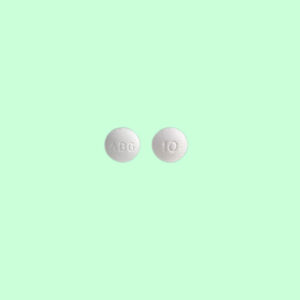
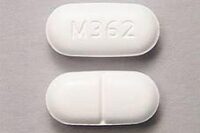
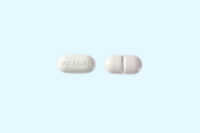
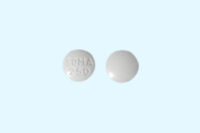
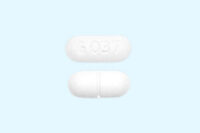
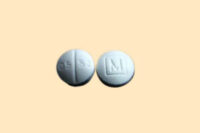
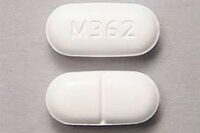
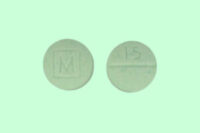





Reviews
There are no reviews yet.